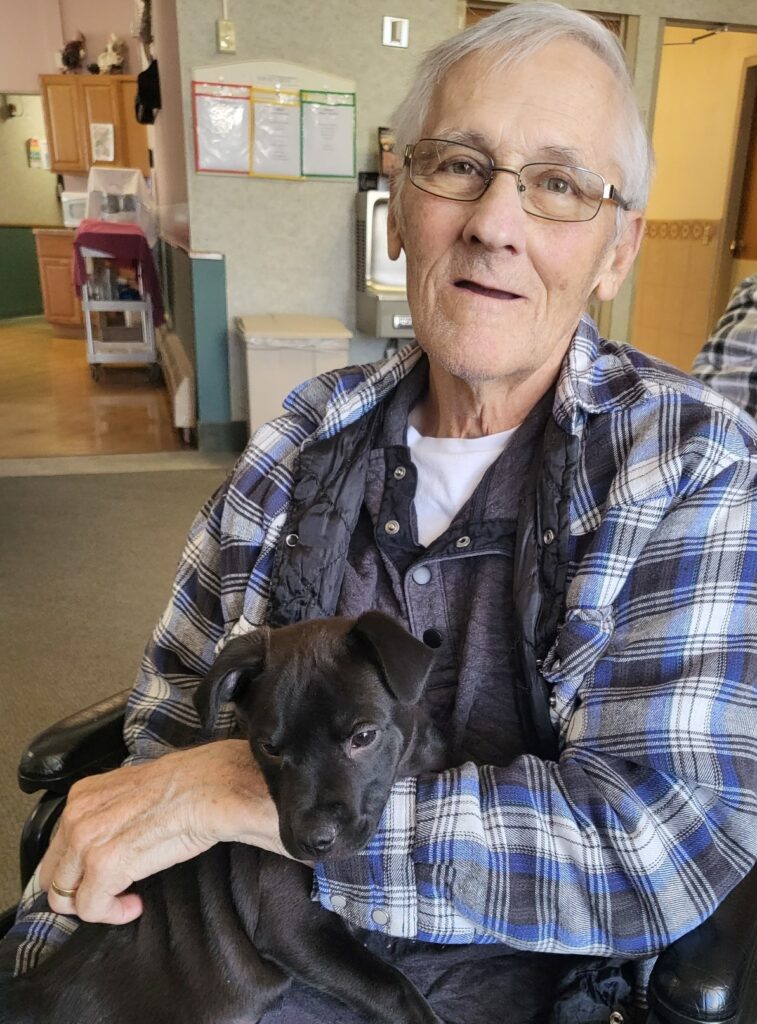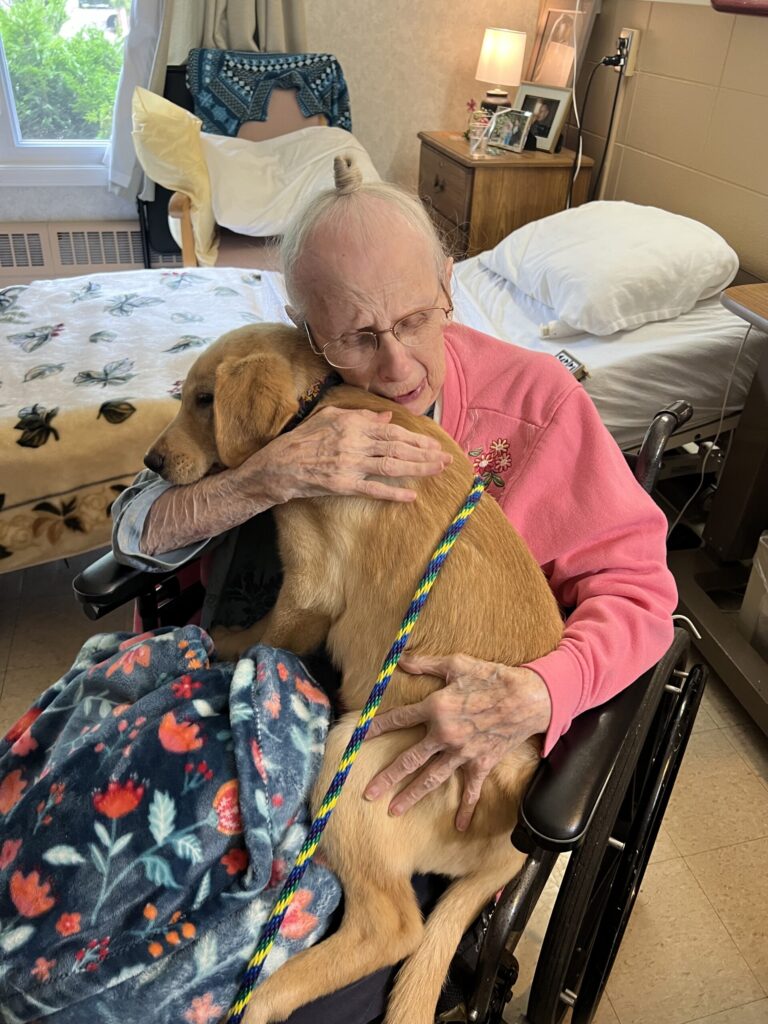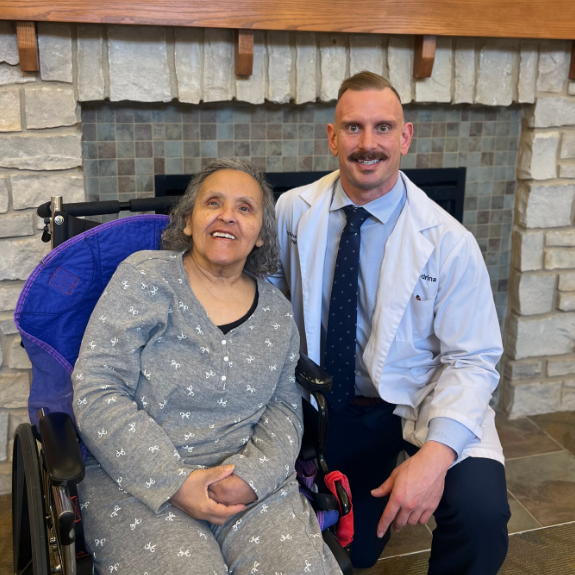Pet Therapy Benefits North Shore Residents
Pet therapy can have a profound impact on the residents at North Shore Healthcare’s centers.
Paws and Claws Humane Society started offering pet therapy to Whitewater Health Services several years ago, thanks to a connection with board member Lindy Hankel, who is also the Medical Director at Whitewater. Hankel brings her dog Bernie, a hospice therapy dog, and foster puppies to the center. The bond the animals share with residents is extremely beneficial.
“A puppy visited a resident, who had endured a prolonged illness with multiple hospitalizations and complications,” Hankel said. “The joy on her face as she stroked the puppy brought tears to the eyes of the staff. The visit went on for a good 15 minutes and it was the most joy the woman experience during her stay.”
Pet therapy can reduce stress and anxiety, promote social interaction, encourage physical activity, and provide a sense of purpose to people, said Pam Nowak, Executive Director at Shawano County Humane Society. The Humane Society has partnered with Evergreen Health Services since spring 2022.

“It is amazing how the residents and staff member’s mood changes,” said Wendy Powell, Life Enrichment Specialist at Evergreen Health Services. “Residents light up when they hold and cuddle the animal. They smile ear-to-ear. Staff members specifically seek out the animal and say, ‘I need some animal time.’ This seems to brighten their day if it’s a rough one.”
Although the residents benefit from pet therapy, so do the animals.
“For the animals, just getting them out of their cages is much enjoyed,” Nowak said. “This kind of visit can provide them with a chance to socialize with people and receive attention and affection, which can help them feel more comfortable and reduce their stress levels.”
Beth Kurtz, Life Enrichment Director at Ashland Health Services, is a former employee of Chequamegon Humane Association. She still volunteers with the organization and wanted to offer pet therapy services when she joined Ashland Health Services, so she began “CHA Animal Day” in fall 2021. Usually dogs and cats visit, but there is the occasional guinea pig or lamb that stops by.
Blending her passion for making the residents smile and helping animals is incredibly heartwarming for Kurtz.
“Pets do more than provide temporary companionship for the residents,” she said. “They also provide meaningful touch and encourage residents to engage in four of the major senses, visual perception, tactile, olfactory, and auditory.”
Pet therapy can bring back fond memories for residents.
“Giving residents the opportunity to hug and snuggle an animal just as they may have when they lived at home helps in calming the nervous system,” Kurtz added. “This increases their ability to feel comfortable and confident in expressing feelings and past experiences.”

Gerda is a certified pet therapy dog through Pet Partners, a national leader in demonstrating and promoting health and wellness benefits of animal-assisted therapy, activities, and education. Owner Doug Wenzel has been bringing Gerda to Cedarburg Brain Injury Center for one year. She also volunteers with hospice patients at Froedtert & Medical College of Wisconsin.
The 8-year-old Leonberger was visiting a Cedarburg Brain Injury Center resident and the moment he put his hand on her, his fingers began moving. This was the first time the resident had moved his finger since being at Cedarburg Brain Injury Center. Staff were “hooting and hollering” out of joy, Wenzel said.
“It is so rewarding to see the patients respond to Gerda, whether it is in a nursing home or clinical setting,” he said.
Gerda has created quite a bond with the residents at Cedarburg. In fact, when she tore her ACL and needed surgery, the residents made her get well cards. The day she returned to the center after recovering was incredible. Residents were glowing and so excited to see their friend again.
“Pet therapy is so much more than having a dog visit; it is watching the residents help care for the dog, retraining their fingers and arm to be able to pet the dog, or working on their speech to call the dog over to them,” said Andrea Nuernberg, Program Director at Cedarburg Brain Injury Center. “Pet therapy is so powerful, and it is amazing to witness the positive reactions it has from our residents.”



